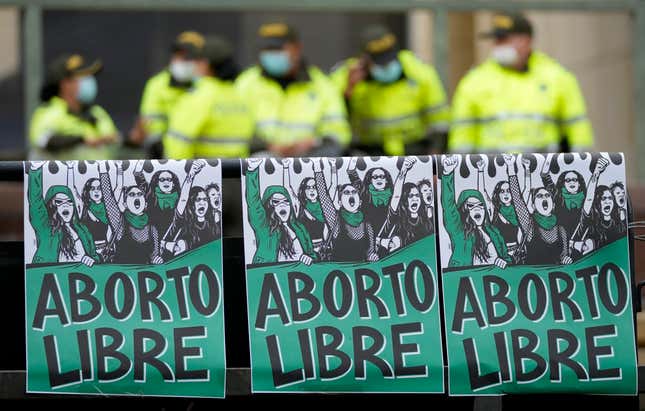Brazilian Judge Denies Abortion to 11-Year-Old Rape Victim, Previewing Post-Roe America
It's not just Brazil—across the US, lawmakers are already boasting about the bans they'll pass without rape exceptions, which are already mostly symbolic.
AbortionPolitics

A judge in Brazil denied an abortion to an 11-year-old who had been impregnated by rape, saying she didn’t want to enable a “homicide,” Newsweek reported on Monday. The young girl had reportedly been raped in her home earlier this year, and when she was taken to the hospital upon learning she was pregnant, a doctor at the University of Santa Catarina denied her an abortion because she was more than 22 weeks pregnant. The university hospital’s rules prohibit doctors from offering abortion care to someone past 20 weeks of pregnancy, without a court order.
Brazil notably criminalizes abortion and threatens abortion patients with one to three years in prison, and providers with one to four years. The country provides exceptions only for threats to the pregnant person’s life, when the fetus is deemed unviable, and, relevant to this case, if the pregnancy is the result of rape.
Joana Ribeiro Zimmer, the judge who refused to allow the 11-year-old girl to have an abortion, reportedly justified this decision by claiming if she allowed the abortion, she would fail to “[protect] the daughter,” referring to the 11-year-old’s unborn fetus, and would have been “subjecting her [the fetus] to a homicide.” Zimmer is now under investigation by Brazil’s Court of Justice, but the damage has been done: The child, who is already living with the trauma of surviving rape, now faces the added violation of forced pregnancy and the tremendous health risks associated with adolescent birth. Newsweek reports the girl is currently living in a shelter for women to protect her from her abuser/rapist at home.
As countries across Latin America and around the world take monumental steps to legalize abortion, this traumatic case offers a terrifying preview of post-Roe v. Wade America, with the Supreme Court’s decision on abortion rights imminent. Anti-abortion governors—who will soon decide whether their respective states ban abortion—and lawmakers are already bragging about the bans they’ll enact sans exceptions.
-

-

-

-

-

-

-

-

-

-

-

-

-

-

-

-

-

-

-

-

-

-

-

-

-

-

-

-

-

-

-

-

-

-

-

-

-

-

-

-








































